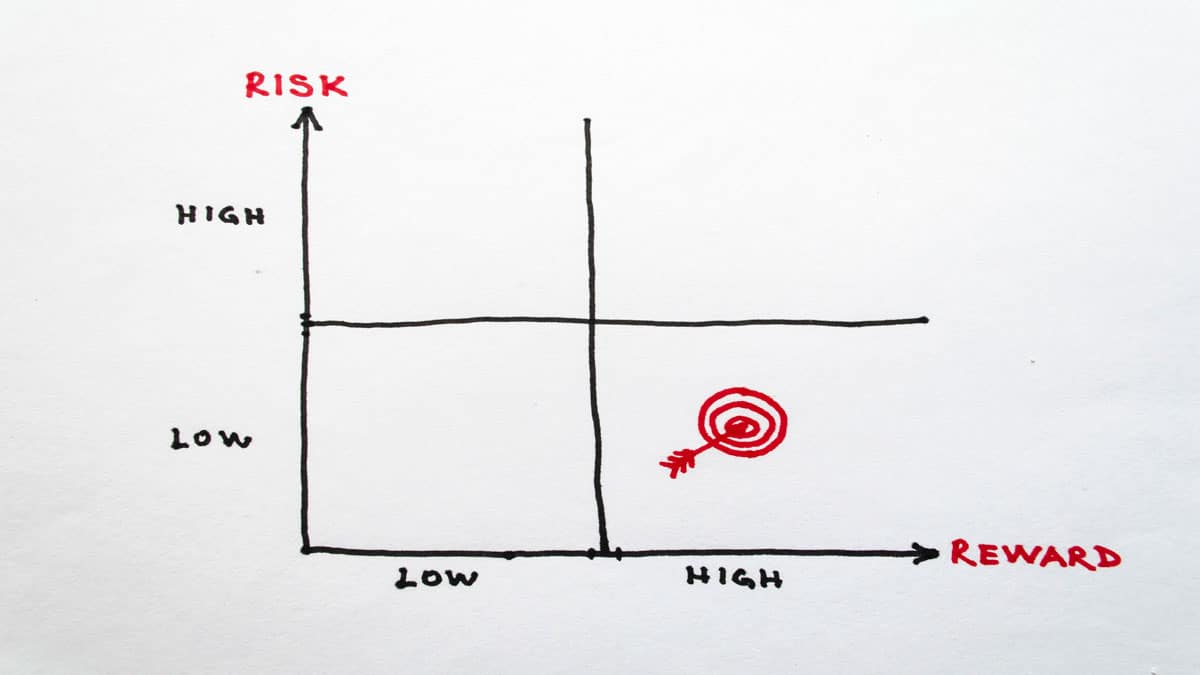THIS POST MAY CONTAIN AFFILIATE LINKS. PLEASE SEE MY DISCLOSURES. FOR MORE INFORMATION.
Are you looking forward to retirement, or are you a bit apprehensive about the unknown?
Retirement can be a time of excitement and anticipation, but it can also bring feelings of fear and uncertainty.
After all, it’s a major life transition that requires careful planning and preparation.
But don’t worry, because in this blog post, we have your back!
We are here to guide you through the essential steps to help you make the most out of your retirement and ensure that you don’t regret a single moment.
Whether you’re already retired or are just starting to think about it, these 17 essential steps will set you on a path to a blissful and fulfilling retirement.
So buckle up and get ready, because your golden years are about to become truly golden!
#1. Invest in Individual Bonds

Many people got burned when bond prices crashed as interest rates rose.
This is because they were invested in bond funds and not individual bonds.
When investing in a bond fund, you are at the mercy of other bond holders and the fund manager.
If they sell at a loss, you lose money.
With individual bonds, you are in complete control.
Plus you can more easily build a bond ladder to reduce more risk.
#2. Save Something

The first thing you need to do is start saving money.
Even if you can only afford $10 a week, this is better than nothing.
Too many people tend to give up thinking it’s too late to save.
But this isn’t true.
First, we are living a lot longer, so if you retire at 65, many people have 20 or more years left to live.
This is time the money you do save can grow.
Second, you have to look at your situation like this. Would you rather not save and have nothing for retirement, or save and have some money?
Even if you only have $50,000 saved, this gives you more options in life than having nothing.
#3. Work Part Time in Retirement

Another idea is to work part-time in retirement.
If you can find a job you enjoy doing, you can get the benefits of working and being social while earning an income.
And as was mentioned, the longer you can delay taking money from your retirement accounts, the better off you will be.
#4. Consider Buying Annuities

Another thing to consider is buying an annuity.
If you go this route, you have to be careful, as they can carry high fees with them.
But there are some out there that offer great benefits, especially for people who are behind on saving.
By putting your money into an annuity, you get a guaranteed income stream during retirement.
Pair this with Social Security, and you might have enough to enjoy your golden years.
#5. Don’t Take Risks With Your Savings

Many people are tempted to take risks with the little savings they have.
They figure it is worth it to try to triple their money overnight.
What they don’t realize is the odds are stacked against them.
They have a greater chance of losing everything than of winning.
Therefore, avoid taking these risks.
Remember what I said originally, having some money is better than nothing.
Invest your money in high quality, large cap stocks, along with bonds and take the return the market gives you.
#6. Think Outside The Box

Once you cut back in some areas, it is time to think differently to find additional saving opportunities.
Can you share trash service with a neighbor? Maybe sell your expensive car for a reliable used car?
Could you find ways to get free food?
The more things you can do to save but don’t drastically change your quality of life, the better.
#7. Look Into Side Hustles

Bringing in additional income is something to consider as well.
The good news is with the gig economy, there are countless ideas for you to try.
You could grocery shop for others, deliver food, take part in focus groups, and more.
The key is finding something you enjoy and then figure out how to earn an income from it.
Once you do this, make sure you put all the money you earn into savings for the future.
#8. Delay Retirement

Just as you should consider delay taking Social Security, so too should you consider delaying when you retire.
By working just a few extra years, you can put away a lot of money.
Plus, this gives the money you have saved more time to grow before you start taking it out.
#9. Network

Networking might sound odd in an article about saving for retirement, but it’s not.
The more you network, the more opportunities come your way.
Maybe you hear of a higher paying job or you learn of a smart Medicare expert in your area that can help you reduce your insurance costs in retirement.
The more people you know and network with, the greater chance of this happening.
#10. Take Care of Yourself

Medical costs will be your largest expense in retirement.
While you can’t reverse the aging process, you can be more active and eat healthy now.
The more you do this, the more you reduce your chances of needing costly medical care.
#11. Reduce Spending

Another important thing to do is reduce your spending.
You don’t have to live like a hermit, but consider ways to cut back.
Instead of eating out three times a week, cut it back to once every two weeks.
Consider buying store brands, shopping at discount stores or even thrift shops.
The more you can cut back, the more money you free up to save.
#12. Consider a Reverse Mortgage

While not for everyone, a reverse mortgage can be an option to put a good amount of money in your bank account.
The downside is leaving your home to your kids isn’t as simple than not doing a reverse mortgage.
But if you don’t have kids, it could be something to consider.
#13. Plan Ahead

It is wise to spend a few minutes thinking about any big expenses you might have during retirement.
Will you be paying for a child’s college education or their wedding?
Will you need a new roof?
Maybe you want to take an expensive vacation.
By being aware of these large expenses now, you can better plan and prepare for them so you aren’t surprised later.
#14. Delay Social Security

This might sound odd, but you should do everything in your power to wait until you are 70 to take Social Security.
The reason is because you will get a larger monthly pay out.
Not only do you get 25% to 30% less each month by taking Social Security before your full retirement age, but for every year you wait until age 70 to take your benefit, you get an additional 8%.
Therefore if you can, wait until 70 to take the benefit.
#15. Stay Positive

It can be disheartening to not have money saved fore retirement. But this doesn’t mean you can’t retire or not enjoy it.
The key is to stay positive.
Having some money is better than nothing.
Going on smaller vacations is better than sitting home all day long.
Plus, a positive outlook is good for your mental health, which can help lower some medical costs too.
#16. Establish Retirement Goals

Start by getting a clear vision of what you want your retirement to look like.
What type of lifestyle do you hope to afford?
Are there any dreams you want to pursue now that you have the time?
Take all these factors into consideration and set realistic goals for yourself.
#17. Review Current Income Sources

The amount you’ll need to save for retirement will be based on your income sources.
Begin by reviewing all of the sources of income you currently have such as salary, investments, rental properties, etc.
Determine how much money each source brings in and how it affects your taxes and other expenses.
Find Out How Much Money You Need For Retirement

Do you know the right amount of money you need to enjoy retirement?
Headlines tell you that you need $1 million dollars or more. But this might not be the case. Find out exactly how much money you need.
HOW MUCH MONEY YOU NEED FOR RETIREMENT
Best Retirement Calculators

Are you confused trying to understand how much money you need for retirement?
You’re not alone. It can be a complicated process. The good news is there are some simple calculators to use to make figuring out your number easy.
THE BEST RETIREMENT CALCULATORS
Learn How To Save $100K

Saving money can be hard, especially if you are looking to have $100K in the bank.
But while it feels difficult, don’t let this stop you. Here is how you can save $100,000 in nine steps.
How To Start Over Financially At 50

It can be difficult to start over financially at any age. But when you are 50, there is added pressure.
Not only do you have a limited number of working years left, but you also see how well others in your peer group are doing.
If you are starting over at 50, don’t give up hope. Here is how to drastically improve your finances.
HOW TO START OVER FINANCIALLY AT 50
Dave Ramsey’s Investment Advice Is Trouble

Dave Ramsey is the king when it comes to getting out of debt and building a financial foundation.
But his investment advice could leave you with no money to live on. Learn why you need to heed caution when it comes to his investing advice.
WHY YOU NEED TO IGNORE DAVE RAMSEY’S INVESTMENT ADVICE
I have over 15 years experience in the financial services industry and 20 years investing in the stock market. I have both my undergrad and graduate degrees in Finance, and am FINRA Series 65 licensed and have a Certificate in Financial Planning.
Visit my About Me page to learn more about me and why I am your trusted personal finance expert.

